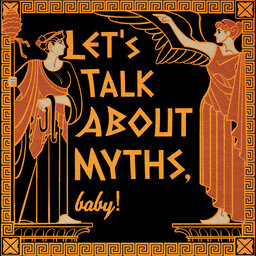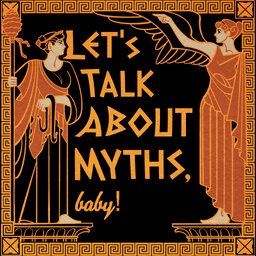Liv Reads Quintus Smyrnaeus: The Fall of Troy (Part 4)
Liv reads Book 4 and part of 5 of the Fall of Troy, translated by AS Way. After the death of Achilles, the Greeks honour him with funeral games held by Thetis. Help keep LTAMB going by subscribing to Liv's Patreon for bonus content!
This is not a standard narrative story episode, it's a reading of an ancient source, audiobook style. For regular episodes look for any that don't have "Liv Reads..." in the title! For a list of Roman/Latin names and who they were in the Greek, visit: mythsbaby.com/names
Attributions and licensing information for music used in the podcast can be found here: mythsbaby.com/sources-attributions.
Let's Talk About Myths, Baby! Greek & Roman Mythology Retold
The most entertaining and enraging stories from Greek mythology and the wider Ancient Mediterranean …Social links
Follow podcast
Recent clips

AHFG Book Club: Jenny Williamson's Enemy of My Dreams
1:16:02

RE-AIR: Conversations: A Long and Storied History of Sparta, Modern Misuse & Misconception w/ Stephen Hodkinson
1:40:25

Hermes Historia: Giorgos the Oikist, Colonization in Greek Antiquity
42:43
 Let's Talk About Myths, Baby! Greek & Roman Mythology Retold
Let's Talk About Myths, Baby! Greek & Roman Mythology Retold